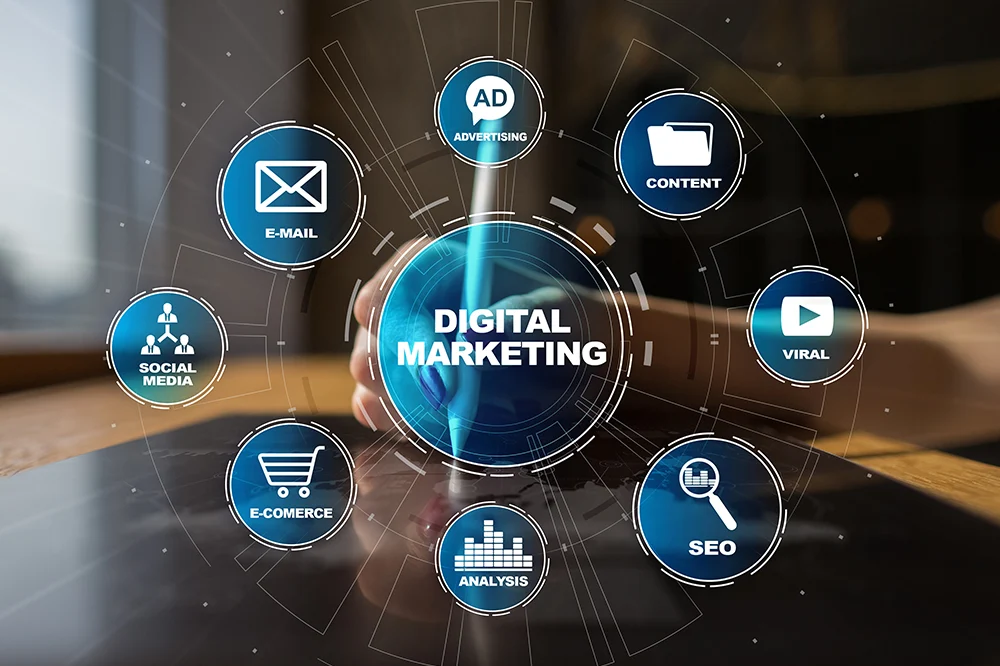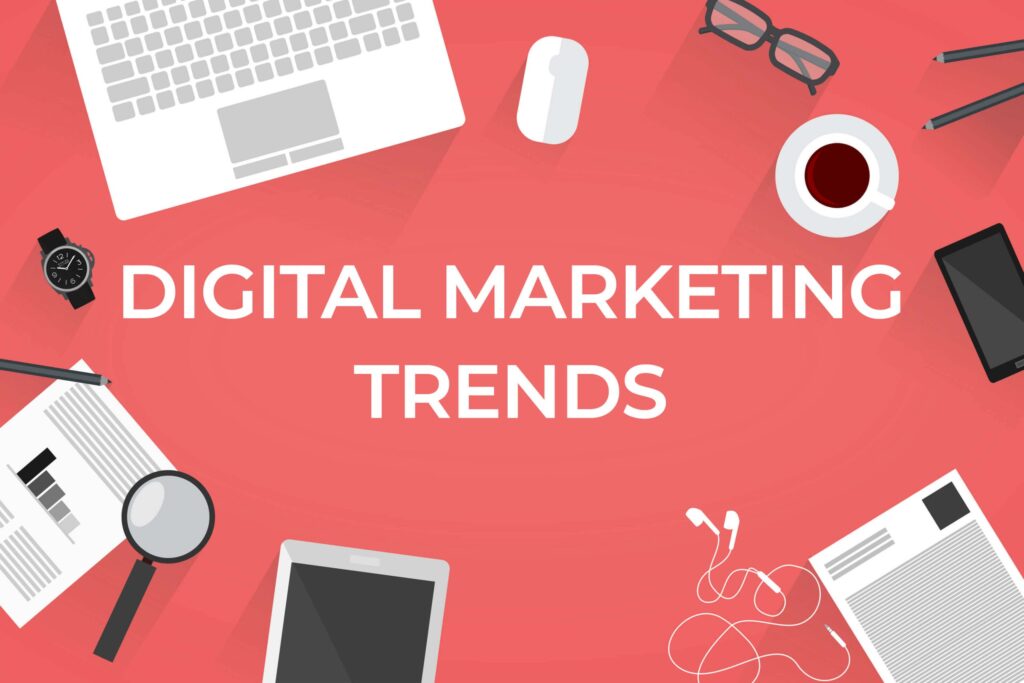Latest Trends in Digital Marketing
In the fast-paced world of digital marketing, staying updated with the latest trends is not just a choice but a necessity. As we step into 2024, the landscape continues to evolve, presenting exciting opportunities for brands to connect with their audiences in innovative ways. Whether you’re a seasoned marketer or just starting, understanding these trends will be crucial for shaping your strategy this year.

1. Artificial Intelligence and Machine Learning
AI and machine learning are no longer futuristic concepts but integral parts of digital marketing strategies. From personalized customer experiences to predictive analytics, AI is transforming how businesses understand and engage with their customers. Chatbots powered by AI are becoming smarter, providing instant customer support and driving conversions through personalized interactions.
2. Voice Search Optimization
With the rise of smart speakers and virtual assistants, optimizing for voice search has become imperative. Marketers need to focus on long-tail keywords and natural language queries that users are likely to speak rather than type. Voice search SEO requires a conversational tone and concise answers to frequently asked questions to enhance visibility in voice search results.
3. Interactive Content
Engaging content that encourages interaction is gaining traction. Interactive quizzes, polls, and 360-degree videos are captivating audiences by providing them with immersive experiences. Such content not only increases dwell time but also encourages social sharing, thereby amplifying brand reach and engagement.
4. Social Commerce
Social media platforms are evolving beyond mere networking sites into powerful e-commerce platforms. The integration of shopping features directly into social media feeds allows brands to shorten the conversion funnel by enabling users to purchase products without leaving the app. Influencer collaborations and shoppable posts are driving significant sales growth through social commerce.
5. Privacy-First Marketing
With increasing concerns about data privacy, consumers are demanding more transparency and control over their personal information. Marketers must prioritize privacy by implementing robust data protection measures and obtaining explicit consent for data usage. Brands that respect user privacy will build trust and loyalty, ultimately gaining a competitive edge in the market.
6. Video Marketing Dominance
Video content continues to reign supreme in digital marketing. Short-form videos on platforms like TikTok and Instagram Reels are capturing the attention of younger audiences, while live streaming is fostering real-time engagement with followers. Brands are leveraging video storytelling to convey their messages authentically and emotionally, thereby forging deeper connections with their target demographics.
7. Augmented Reality (AR) Experiences
AR is revolutionizing the way consumers experience products online. Brands are leveraging AR technology to allow customers to visualize products in their own environments before making a purchase decision. This immersive shopping experience not only enhances customer satisfaction but also reduces return rates by ensuring that customers know exactly what they are buying.
8. Sustainability and Corporate Social Responsibility (CSR)
Consumers are increasingly making purchasing decisions based on a brand’s commitment to sustainability and CSR initiatives. Digital marketing campaigns that highlight environmental stewardship and social responsibility resonate with eco-conscious consumers. Brands that align their values with those of their customers are building stronger brand loyalty and goodwill in the market.
9. Personalization at Scale
Hyper-personalization is becoming the cornerstone of effective digital marketing strategies. Leveraging data-driven insights, marketers can deliver highly relevant content and offers to individual customers across multiple touchpoints. Personalized emails, product recommendations, and tailored marketing messages enhance customer satisfaction and drive conversion rates.
10. Blockchain Technology
Blockchain is transforming digital marketing by enhancing transparency and security in advertising and customer data management. Decentralized platforms are enabling marketers to verify ad impressions, combat ad fraud, and ensure that data transactions are secure and tamper-proof. Blockchain-powered loyalty programs are also incentivizing customer engagement and fostering trust among participants.
In conclusion, the landscape of digital marketing is continually evolving, driven by technological advancements and shifting consumer behaviors. By embracing these latest trends and integrating them into your marketing strategy, you can stay ahead of the competition and forge meaningful connections with your target audience in 2024 and beyond. Stay tuned as we delve deeper into each of these trends in future posts to provide you with actionable insights and strategies for success.


